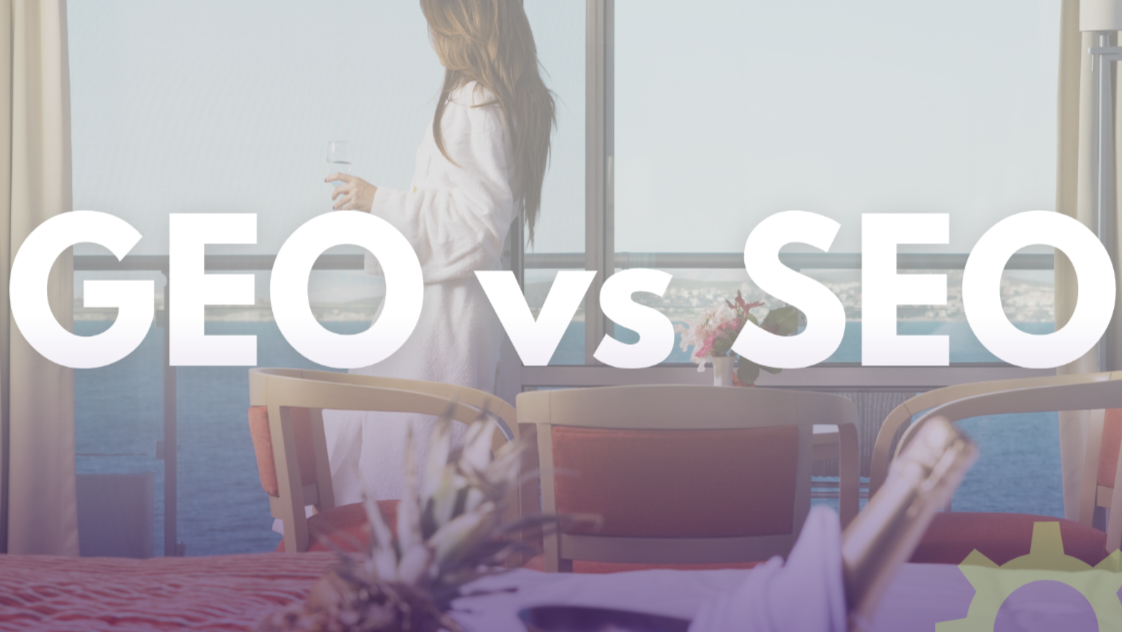Branded hotels are in a unique digital marketing predicament. On the one hand the brand is a marketing organization and can open doors and steer demand to the branded hotel that is far out of the reach of any independent hotel. The investment in a brand affiliation provides the competitive benefit of attracting national and global travelers, brand-loyal guests, and Fortune 500 business travelers. Yet with all the good intentions of the brand, tremendous revenue opportunities still exist for any branded property above and beyond the core focus of the major brand.
The branded hotel faces fierce competition from savvy independent properties in their market and properties from other major brands. But that is not all. Increasingly important is finding ways to differentiate from and compete against other branded properties from the same brand on brand.com, search engine results pages and online media. For example in New York City, a Marriott-branded property competes with 125 other Marriott-branded properties, while a Hilton-related property competes with 51 other Hilton-related properties. In Chicago, there are 80 Marriott-related properties and 66 Hilton-related properties.
So how can a branded hotel level the playing field and compete successfully against independents and other branded properties?
By implementing a property-level strategy focused on generating incremental revenues, targeting key market segments and engaging travel consumers above and beyond what the major brand can do for the property, consisting of:
- Launching a vanity website with editorial level, SEO-rich content with descriptions about the property’s products, services and customer segments.
- Launching a digital marketing action plan that supplements the brand’s efforts with property-level, local and niche initiatives.
In doing so, you will differentiate yourself within the brand, generate incremental revenues in addition to what the brand can provide, address lucrative local market segments, and further limit your exposure and reliance on the OTA channel.
The Vanity Website: The Gateway to Driving Incremental Revenues
Today’s hotel website serves two purposes: to sell rooms and engage users. It is the heart of the property’s direct online channel marketing initiatives, the main hub of the property’s multi-channel marketing campaigns across the three screens, and is the property’s main engagement platform with the always-connected online travel consumer.
The vanity website provides the branded hotel with the only real opportunity to generate incremental revenues today, outside of the major brand website and the OTAs.
Our extensive experience with branded hotels categorically shows that the vanity website equips the property with significant competitive advantages compared to branded hotels relying solely on the brand efforts. The branded hotel with a vanity website:
- Competes successfully against independent properties in the destination.
- Stands out and better competes with other branded properties, including properties from the same major brand.
- Increases direct online bookings and decreases reliance on the OTAs by significantly improving the merchandising capabilities of the property: generating on the fly relevant marketing landing pages, special offers and packages pages, events and happenings at the property and around the property.
- Improves search engine ranking share by adding 30-50 relevant content pages with property descriptions via the property vanity website, a nice improvement over the 5-10 pages of data-driven, dry content about the property on the major brand website.
- Gains market share from the comp set.
In the past, we have seen clear examples of the power of the vanity website: When new owners discontinued the property vanity website due to ill-conceived “savings” considerations, over 75% of the roomnights booked previously via the vanity website were lost to the competition, both branded and independents.
Vanity websites are by far the most cost-effective distribution channel and provide hoteliers with excellent ROIs, immediate results, and long-term competitive advantages. An analysis by HeBS Digital showed that on average the cost per booking via the OTAs is several times higher than via the property’s own vanity website.




